The true magic of travel to Kerala unfolds when we stray from the usual sights. It’s in these unexpected corners that we discover treasures waiting to be appreciated.
Today, we are off on an adventure, exploring the remarkable traditions of artisans all over Kerala. These crafts aren’t just beautiful objects, they’re the symbol of Kerala’s rich artistic talent.
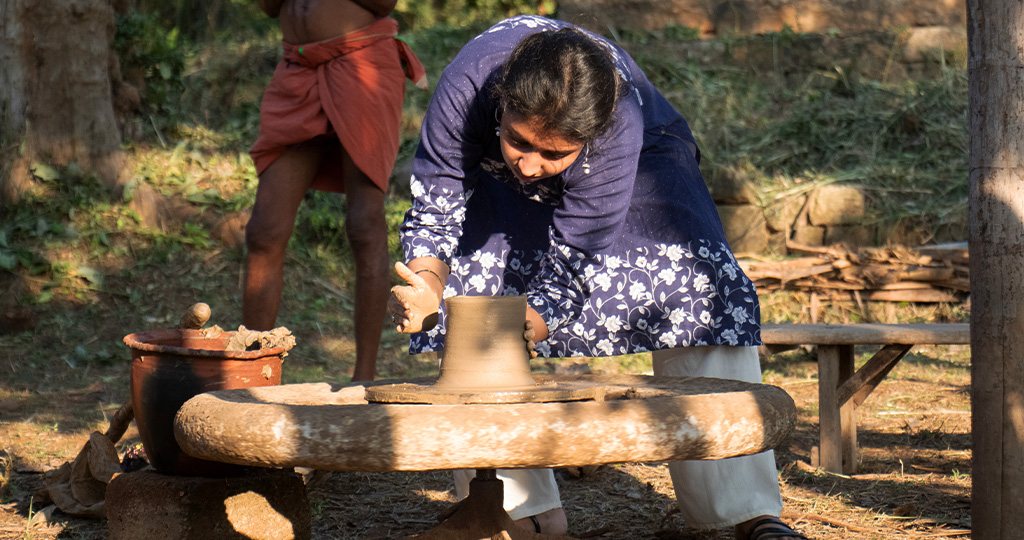
This is part two of our exploration into the fascinating world of sustainable crafts. In our previous article, we delved into the first part of diverse crafts and communities of Kerala.
Now, we broaden our horizons, meeting artisans who breathe life into everyday objects using practices passed down through generations.
Prepare to be impressed by the dedication, resourcefulness, and artistry that continues to thrive in these hidden corners of the world.
Rolling with Tradition: Beedi Makers of Kerala
The art of beedi making in Kerala tells the tale of tradition, resilience, and the ebb and flow of time. Once a thriving source of livelihood gracing countless households across the state, this age-old craft faces extinction in the face of modernity.
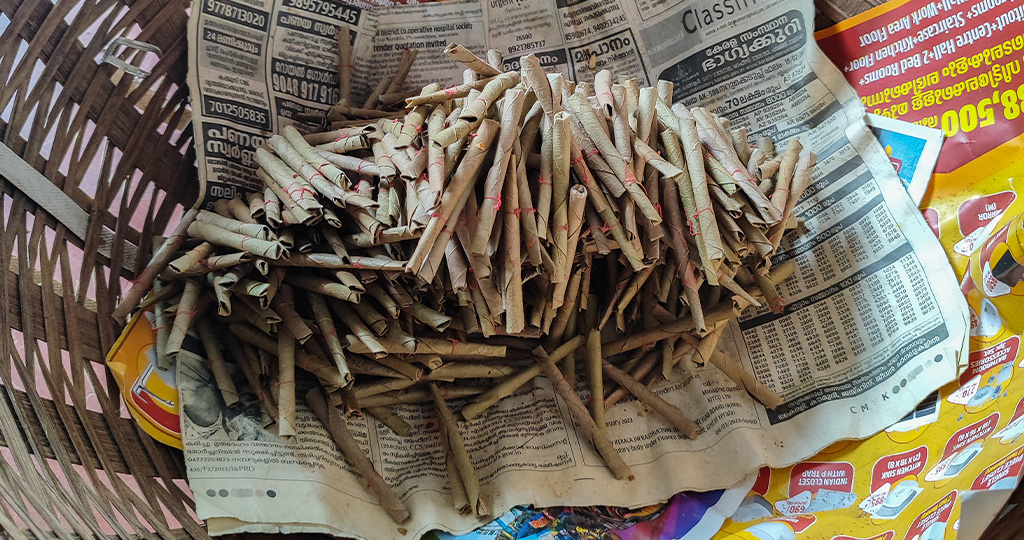
Beedis, slender cousins of cigarettes, are carefully handcrafted using tobacco flakes and tendu leaves, bound together with a pink thread.
Women have long been the backbone of Kerala’s beedi industry, their nimble fingers making these tobacco creations in the quietude of their homes. It was these workers’ hard work that fueled this niche economy.
In 1969, the Kerala Dinesh Beedi cooperative society emerged to prevent the exploitation of the workers and to provide them the support they need.

Yet, as Kerala progresses, the once-booming beedi industry fades. Better education brings new opportunities, drawing workers away from the low wages of beedi making. Alternatives to Beedi gain favor, further diminishing its dominance.
While Moksha Stories does not promote tobacco use, we recognize the poignant stories woven into the craft of beedi making.
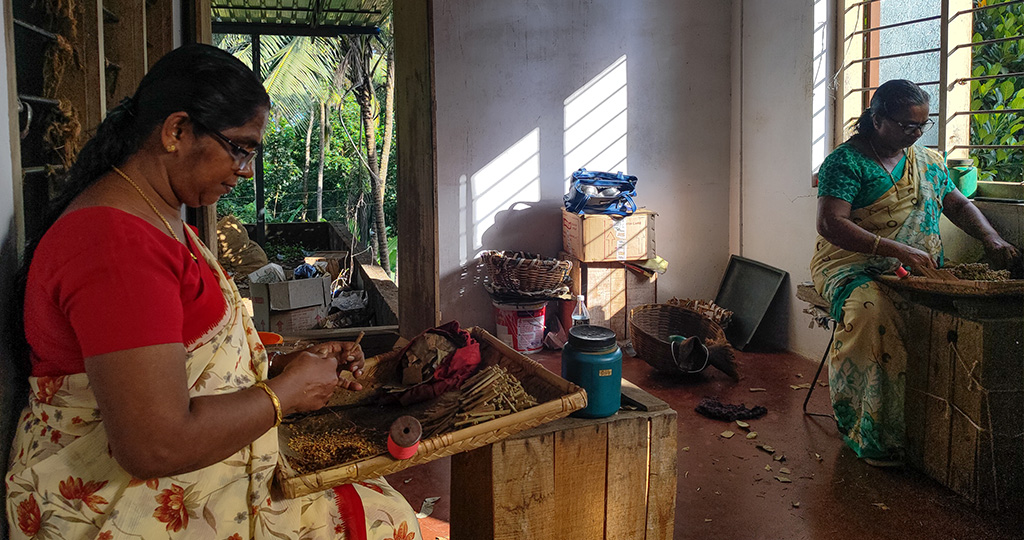
North Kerala, and particularly Palakkad, now hold the remnants of this artisanal tradition. A visit to a beedi-making community offers a chance to witness the agility of practiced hands and to hear firsthand the bittersweet narratives of the women shaping these creations.
It’s an ecotourism experience tinged with nostalgia, a harrowing reminder of the shifting tides within Kerala’s cultural landscape.
The Vishari makers of Kerala
In the days before the hum of electric fans, Kerala’s homes were filled with the gentle swish of the Vishari, the traditional hand fan, crafted by the skilled artisans of the Panan community. These beautiful objects weren’t just functional companions; they were woven from the very essence of Kerala’s sustainable way of life.
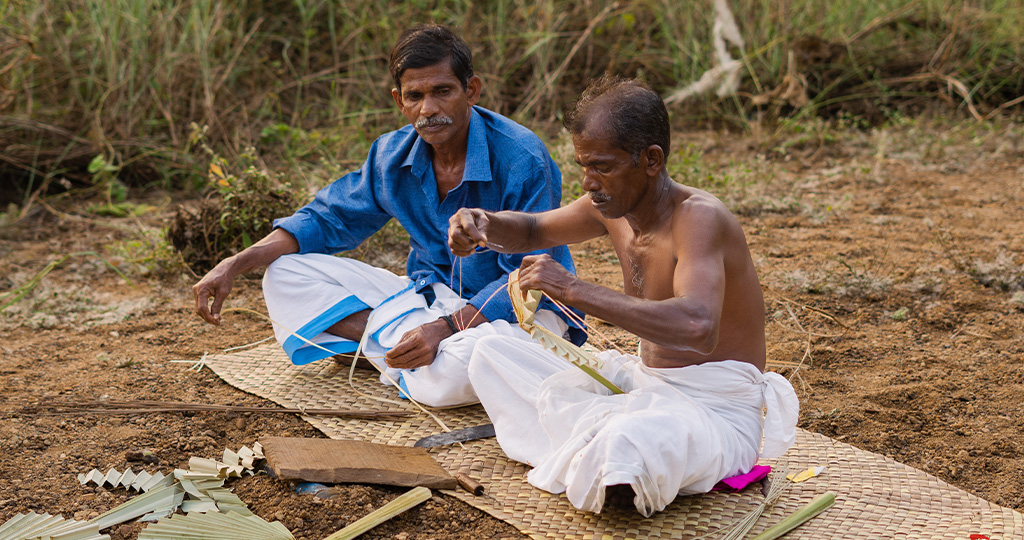
The Vishari’s story unwraps at the hands of the Panan community. Their expertise lies in transforming the sturdy leaves of the palm tree into a cool comfort.
Witnessing the creation of a Vishari is like watching a centuries-old tradition come alive. Each step, from selecting the perfect palm frond to weaving it into its final form with intricate designs and patterns unique to Kerala Vishari, takes dedication and patience.
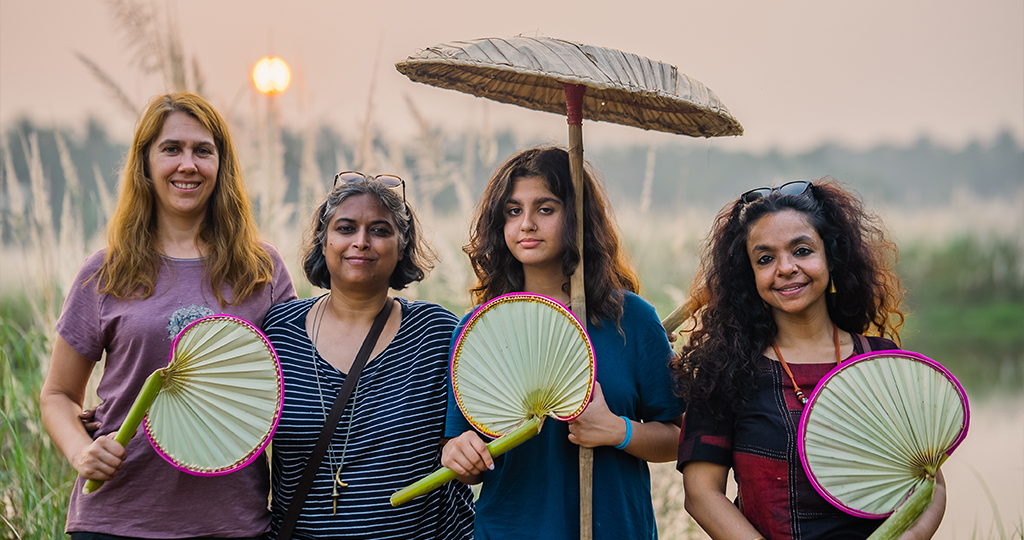
While modern conveniences have brought electric fans, the Vishari hasn’t lost its charm. Made from natural materials, these fans are not only eco-friendly but also incredibly durable.
Today, they grace homes not just for their cooling properties, but also as decorative pieces, a beautiful reminder of Kerala’s heritage.
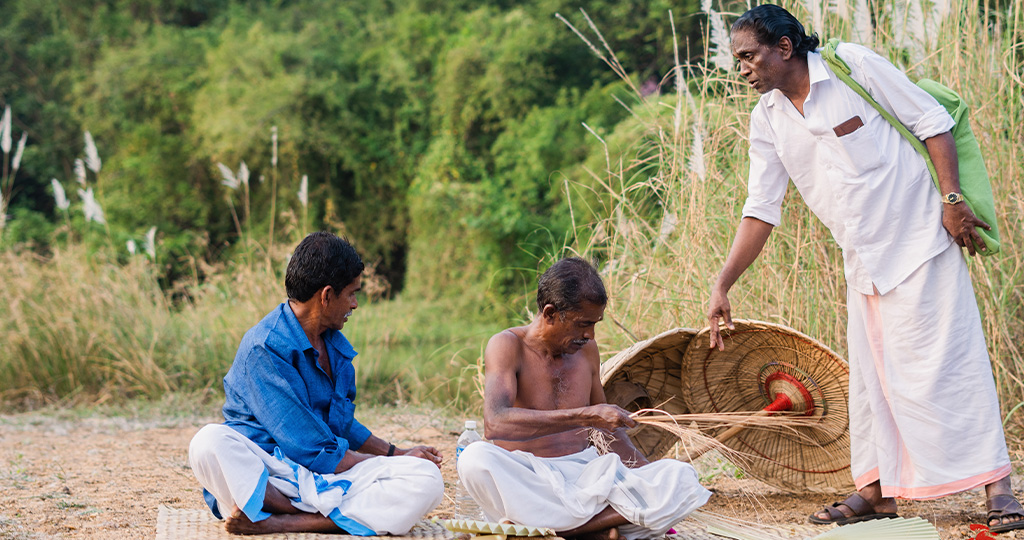
The future of Vishari making, however, faces challenges. Palm trees are becoming less common, and younger generations are drawn to new opportunities. Yet, the craft still endures in the hands of dedicated artisans.
If you find yourself exploring hidden corners of Kerala with Moksha Stories as your companion you would be able to experience this craft.
As you travel through Kerala, keep an eye out for these handheld treasures, and discover the stories woven into their cool embrace.
Kerala’s Toddy Tapping Tradition
Kerala’s landscape is dotted with towering coconut and palm trees. These trees hold more than just beauty; they’re the source of a refreshing local drink called toddy, or palm wine.
Toddy is also known throughout Kerala as “Kerala Toddy,” is a beverage with a long history. Interestingly, around 70% of the toddy sold in Kerala comes from the Palakkad district, where the tradition of toddy tapping is particularly strong.
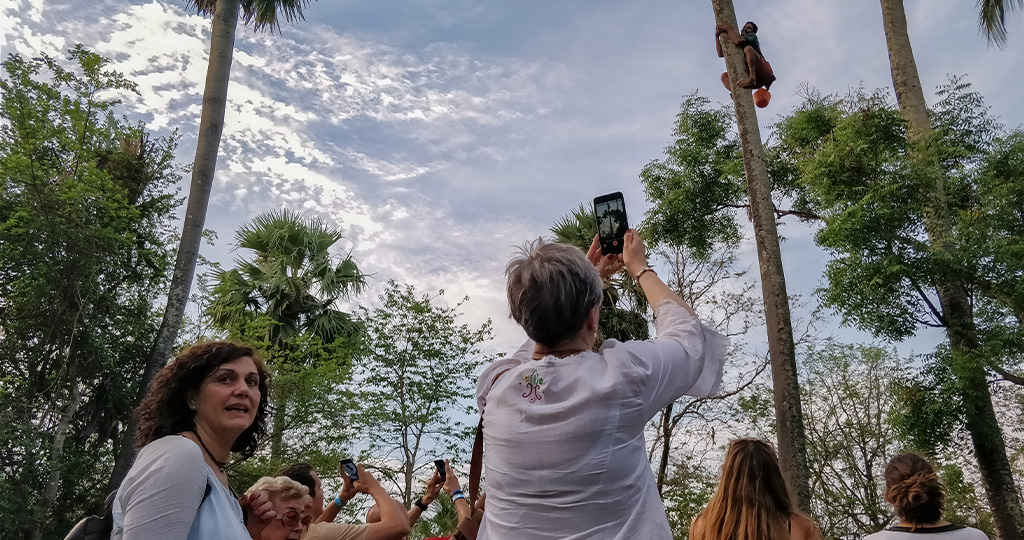
For generations, toddy tapping has been a vital part of Kerala’s cultural and economic life. Once a profession of high status, second only to agriculture, toddy tappers held a respected position in society and enjoyed financial security.
Making toddy is a fascinating skill, passed down through generations of toddy tappers. These skilled climbers ascend the tall trees with impressive agility. Their aim? Reaching the unopened flower bud, where the sweet sap is collected.
Watching a toddy tapper work is a unique experience, a recognition of their skill and knowledge.

The collected sap then undergoes a natural fermentation process, transforming it into a slightly alcoholic toddy. This beverage is more than just a drink; it’s a taste of Kerala’s heritage, traditionally enjoyed for its refreshing qualities, often paired with delicious local dishes you can find in the toddy shops.
Today, while toddy tapping remains an important part of Kerala’s cultural fabric, the number of toddy tappers is declining. New opportunities and changing lifestyles have drawn some away from this traditional practice.
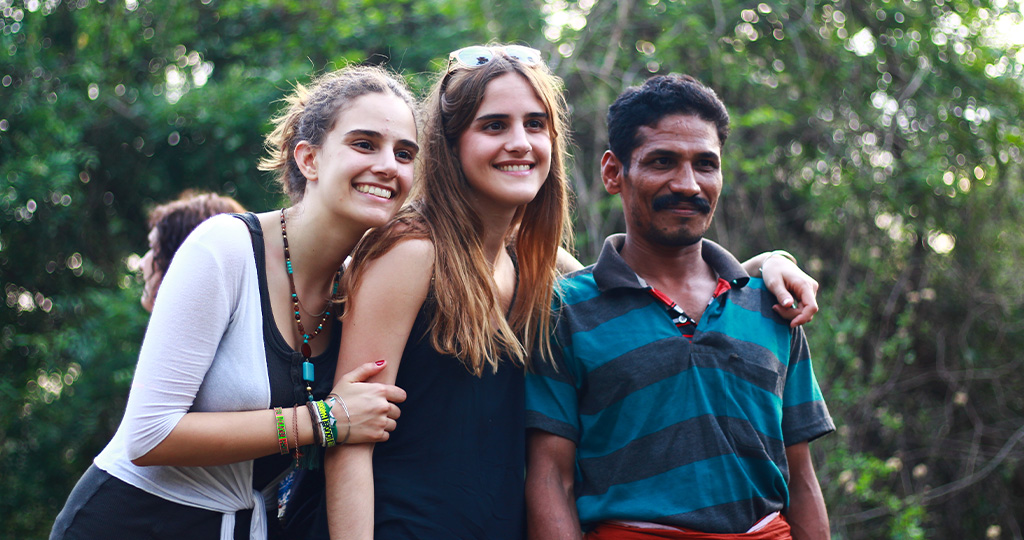
However, if you’re curious about this tradition, keep an eye out during your travels. You might see a toddy tapper working on a palm tree, offering a glimpse into this unique practice and Kerala’s deep connection to its natural resources.
Today, toddy tapping remains an important part of Kerala’s culture. It’s a reminder of the deep connection between the land and its people, a tradition that continues to evolve alongside Kerala’s culture.
Olappaya: Comfort Crafted with Care
In bygone eras, before modern comforts, Kerala’s homes often featured the Olappaya, a woven palm leaf mat. Versatile and practical, these mats served as beds.
Using leaves from both coconut and palmyra trees, artisans weave these mats in intricate designs that have been passed down through generations of women and each adds their artistic value.
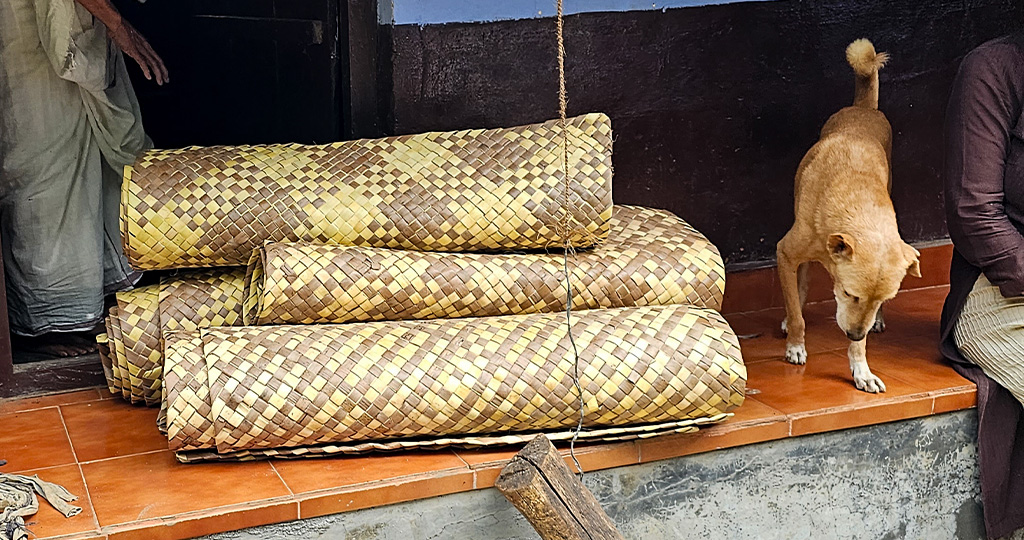
Witnessing the weaving process is like watching tradition come alive. Each palm leaf, meticulously selected and prepared, is then woven into these unique patterns. It’s a transformation from simple materials into something both useful and beautiful.
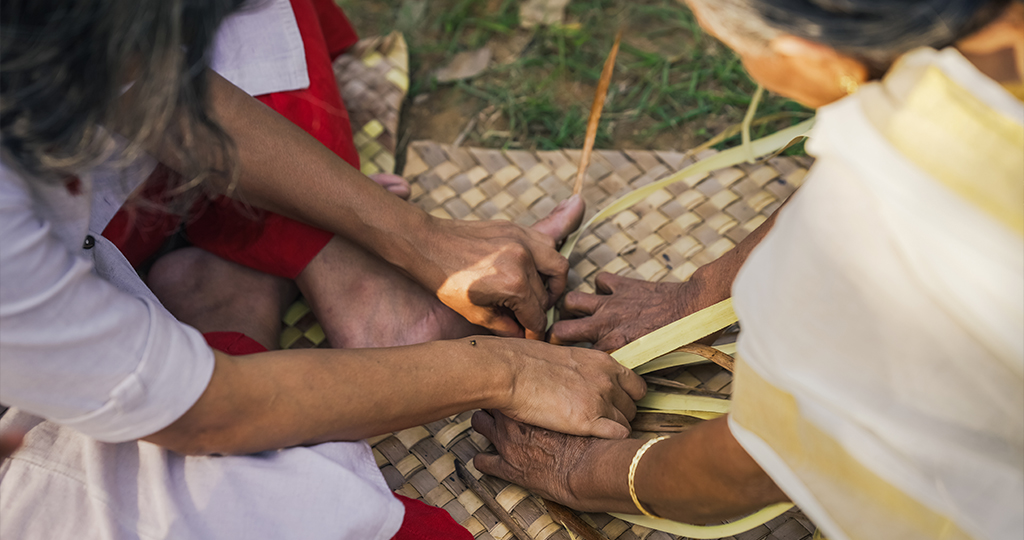
Olappayas weren’t just comfortable sleeping surfaces; they were incredibly flexible. They could be used for sitting, relaxing, or even as a way to add a touch of tradition to a wall. Today, they continue to decorate Kerala homes, showcasing the artistry of palm leaf weaving.
However, this age-old craft faces challenges. Finding the raw materials, palm leaves can be increasingly difficult. Additionally, fewer young people are drawn to palm leaf weaving, choosing other career paths.
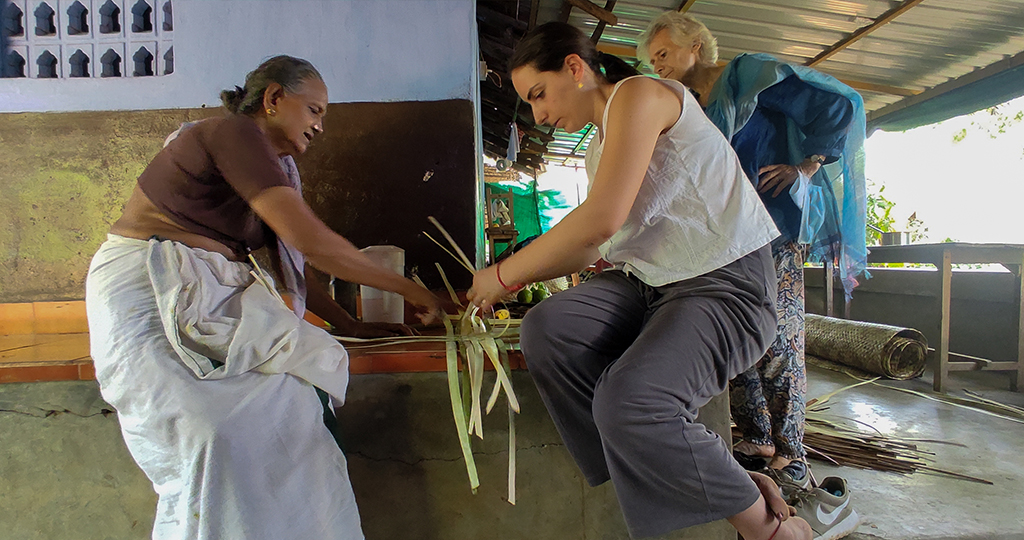
Despite these challenges, the spirit of palm leaf weaving endures. If you venture off the beaten path in Kerala, you might be fortunate enough to encounter a family continuing this precious tradition.
You’ll witness the dedication and skill of the weavers and discover the comfort and beauty of an Olappaya mat.
Adakkaputhur Kannadi: A Handcrafted Metal Mirror
Have you ever seen a mirror made entirely of metal? In Kerala, a land bursting with color and tradition, there exists a unique mirror – the Adakkaputhur Kannadi, aka mirror. Unlike the glass mirrors lining our walls, this handcrafted beauty boasts a unique charm and a fascinating story.
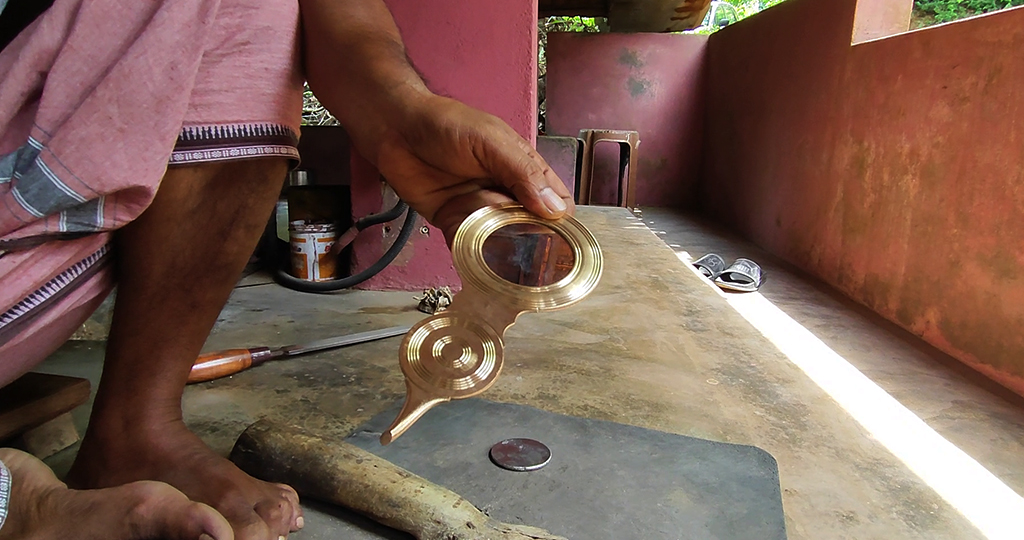
The tale of the Adakkaputhur mirror begins with a local art patron named Kunnathu Raman Namboodiri. Captivated by the famed Aranmula Kannadi, a famous metal mirror of Aranmula, Namboodiri envisioned something similar for his town, Adakkaputhur, a village situated near the banks of the river Nila –a source of pride for its residents.
Inspired by this vision, he approached Balan Mooshari, a skilled craftsman from the Mooshari community renowned for their metalworking expertise. Balan spent years meticulously refining his techniques, fueled by Namboodiri’s encouragement and his passion.
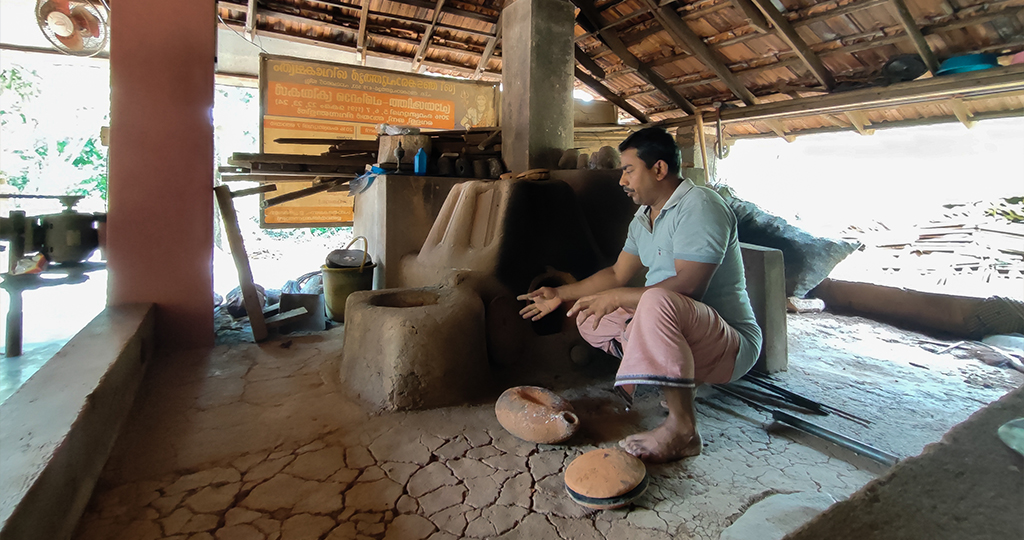
The result? The Adakkaputhur Kannadi (mirror), a testament to the artisan’s dedication and innovation. Unlike glass mirrors, the metal mirror offers a single, enticing reflection, adding a touch of character. This meticulous approach allows Krishnakumar, Balan’s son and the sole inheritor of this craft, to create only a few mirrors each month.
More than just a beautiful object, the Adakkaputhur mirror holds cultural significance in Kerala. Considered auspicious, it’s a cherished gift for weddings and other Hindu rituals, often passed down through generations as a beloved family heirloom.
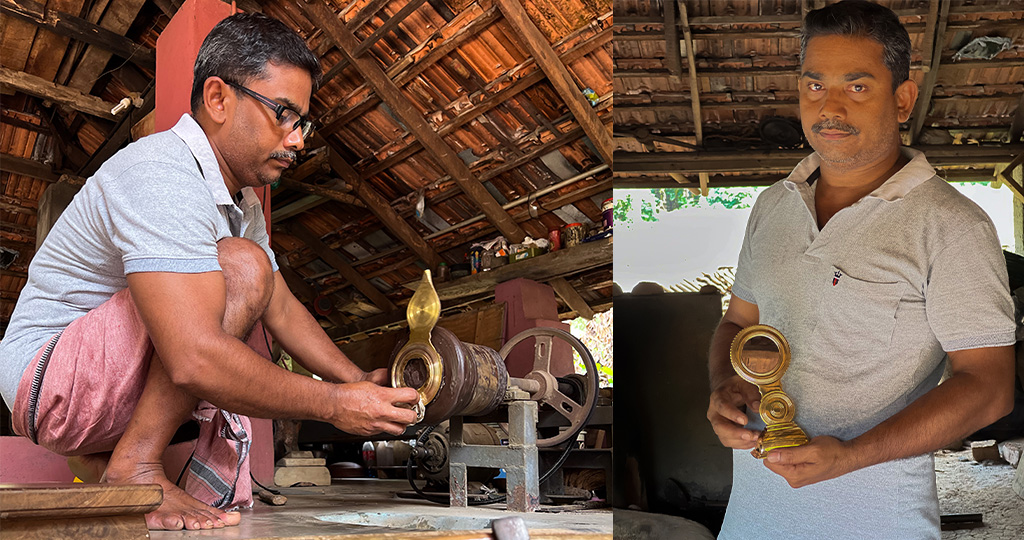
While the demand for the mirror remains high, there aren’t many willing to learn this intricate process from Krishnakumar as a result future of this mirror hangs in the balance.
Witnessing his work is a unique opportunity to connect with a family legacy and appreciate the enduring beauty of the Adakkaputhur mirror.
Conclusion:
Kerala’s spirit thrives on sustainable creation. Artisans, for generations, have woven their skills and love for nature into beautiful everyday objects.
From fragrant beedi leaves to cool palm leaf mats, these crafts are more than souvenirs – they’re sustainable treasures. Witness the artisanship and tradition behind Kerala’s heritage.
Moksha Stories connects you with these communities on unique tours, unveiling the sustainable magic woven into each creation.
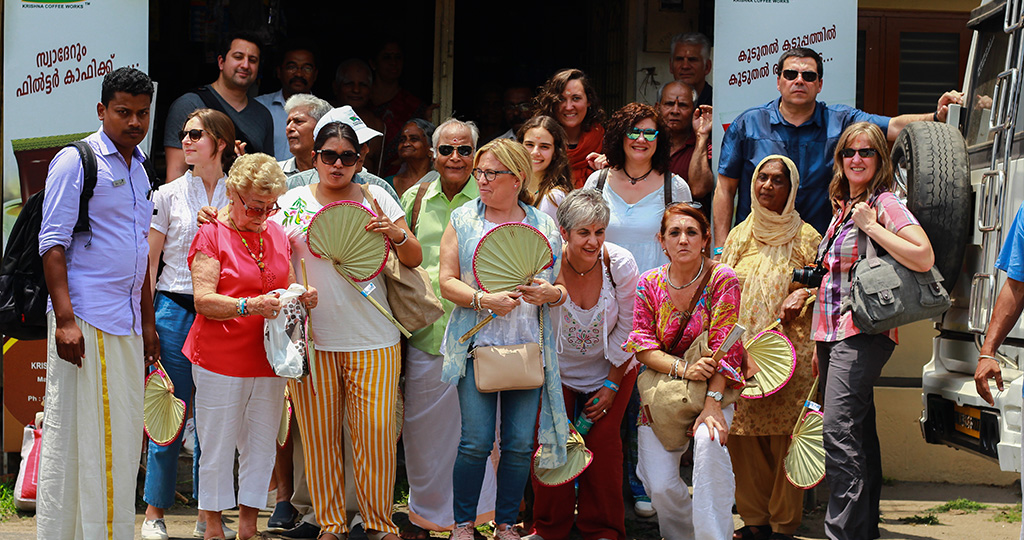
Ready to explore? Discover Kerala’s heart through our specially crafted tours by clicking here.
![logocolor[1]](https://mokshastories.com/wp-content/uploads/2023/06/logocolor1.png)
